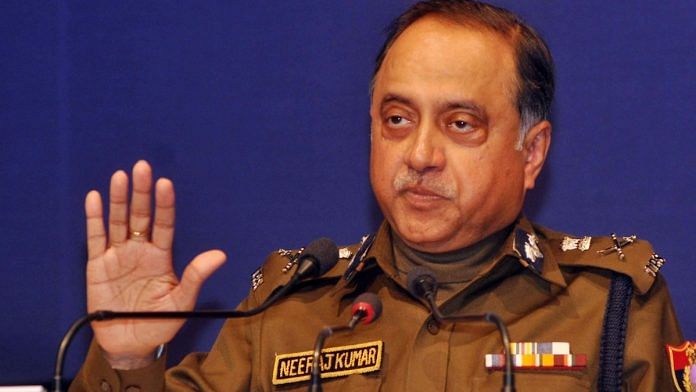Delhi Crime, a popular web-series on Netflix based on the 2012 ‘Nirbhaya’ case, won the International Emmy Award in the best drama category. It has made history by bagging the first Emmy for India. However, very few know how the series was conceived and executed, and my role as former Delhi Police Commissioner in it.
I was introduced to a nondescript young Canadian filmmaker called Richie Mehta during an evening dinner at a friend’s place in 2014. Richie said he had made a film in English on time travel and one in Hindi on a Delhi ragpicker. I had retired a couple of years earlier as the Delhi Commissioner of Police after a 37-year career in the Indian Police Service (IPS), nine of which were in the Central Bureau of Investigation (CBI).
I was blessed to have helmed the investigations of important cases involving terror, economic crimes, organised crime and corruption. The cases ranged from the 1993 Mumbai serial bomb blasts, Aftab Ansari’s arrest and deportation (the mastermind of the attack on the American Center at Kolkata), Abdul Latif’s arrest (a notorious mafia don of Gujarat), the nabbing of Jagtar Singh Tara (one of the assassins of Punjab CM Sardar Beant Singh), the UTI scam, and so on. But, it was at the fag end of my career as CP-Delhi that I faced the most challenging case involving the horrific gangrape of Jyoti Singh in a moving bus in south Delhi. The public, political and media reaction to the crime was sharp and severe. By God’s grace, we succeeded in cracking the case in five days, arresting all six accused and charge sheeting in a record ten days. We secured the conviction of the accused in a year’s time with the court praising the quality of our investigation in glowing terms. What once seemed to be the undoing of my career’s achievements was now another feather in my cap. I was keen that the story of our unique experience in dealing with this case be made into a film as a document for posterity. So, I suggested it to the young filmmaker — why not make a film on Nirbhaya?
Also read: Netflix series ‘Delhi Crime’ wins International Emmy in ‘Best Drama’ category
On my responsibility
Richie Mehta’s reaction was cautious and circumspect. He thought it was too controversial to handle. I persuaded him to read the chargesheet and the court’s order in the case before rejecting my suggestion. I promised to hold his hand through the project and connect him with my teammates. Having done as he was told, he gradually got involved and then became fully committed to the making of the film.
Richie researched the subject for four years during which he needed my constant help. Luckily for him, he found a group of youngsters, mostly of Indian origin and mostly based out of the US, who pooled in the money for the project. The production team met me and wanted a written undertaking that should there be any legal liability, I should be ready to take responsibility. After some initial hesitation, I signed the undertaking.
The shooting commenced in Delhi, mostly on the roads. No sets were used. I advised the producers not to involve my successors who would neither approve of the project nor would they give any support, since the case was their predecessor’s — a common failing observed in the police. Thus, the entire shoot was done almost in a hush-hush manner without formal permissions.
Also read: Delhi Crime: Why watch a Netflix series on the intensely reported Nirbhaya gangrape case
My only complaint
Before the shoot, I recall collecting the entire cast, including Shefali Shah, and briefing them about police hierarchy, the rank structure, how to wear the uniform, the body language of the police and the works. If the viewers find the series to be an authentic depiction of the police, it is perhaps on account of these briefings.
I must confess I never went to any shoots, except the one at India Gate, because my visits to the locales would have spread the word that I was getting Delhi Crime made for my glorification. Little would anyone have known that it was to project the good work done by the Delhi Police. However, in the bargain, most ironically, my own role (played by Adil Hussain) became a caricature of what it was and what it ought to have been. The trauma of being in the eye of the storm, when everyone was baying for my blood, when my daughters were being threatened with rape, when my refusal to quit was becoming news headlines, and when my reputation was on the line was all but missed out in the final product. Had I at least involved myself when scenes concerning me were being shot, the CP’s role would have been closer to what it actually was. But why cry over spilt milk, especially when Delhi Crime has won an Emmy!
Neeraj Kumar is former police commissioner of Delhi. He set up the Special Task Force in the Central Bureau of Investigation in 1993 that probed the Mumbai blasts. He was chief advisor to the BCCI on corruption and security-related matters. He is the author of books Khaki Files and Dial D for Don. Views are personal.




I also told Modi to do something about terrorism. But never visited the PMO.